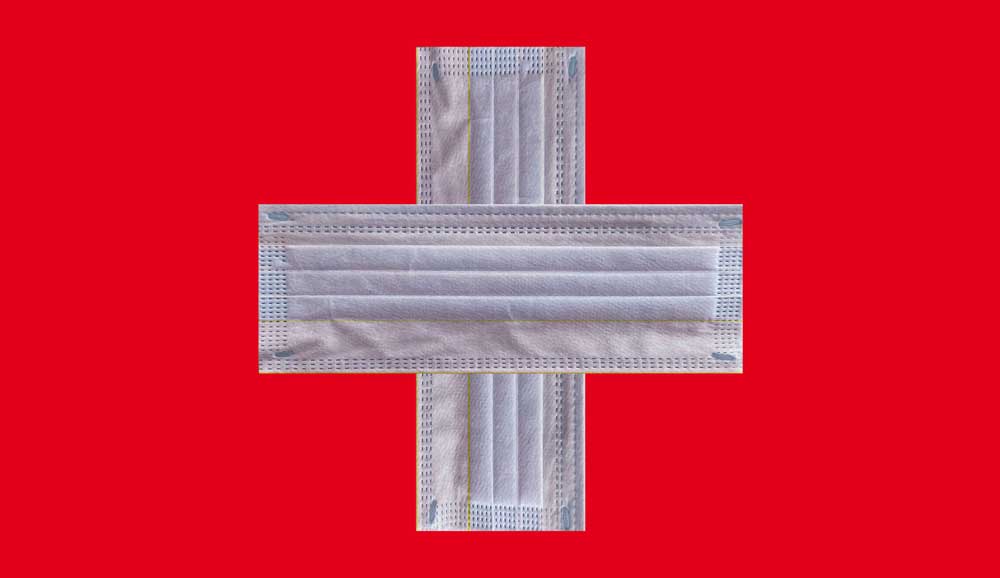
Money laundering won't wash
COVID loans are a silver lining for Swiss companies – for others, they offer an opportunity to cash in on the crisis. The Money Laundering Reporting Office Switzerland (MROS) at fedpol is constantly on the lookout for criminal transactions.
March 2020. Lockdown. Everyday life had been put on hold in Switzerland. Shops, restaurants, cinemas: all closed until further notice. Construction sites and offices: completely deserted. This was the moment when the coronavirus infected the Swiss economy, a thriving economy that now began to ail.
After the initial shock, despair began to spread among many Swiss businesses. Commercial rents and wages still needed to be paid. Even when there was no money coming in.
But then all of a sudden there was hope on the horizon: the federal government would be providing loans. CHF 20 billion for a start – and later, much more. On 25 March 2020, Finance Minister Ueli Maurer clarified the terms, stating to whom, how, where, how much and for what purposes these loans would be given. All over the country, entrepreneurs were watching the press conference with rapt attention. But they were not the only ones.
Taking money launderers to the cleaners
In mid-May, a cantonal police force arrested several people on suspicion of money laundering. After the suspects had obtained millions of Swiss francs in COVID loans using fake company information, they immediately tried to cover their tracks by transferring the money to foreign accounts. But what they did not take into account was the diligence of the specialists at the Money Laundering Reporting Office Switzerland (MROS). The latter reconstructed the transactions, collected all the necessary information and reported the crimes they uncovered to the cantonal public prosecutor's office. Even before the money was safely stashed in accounts abroad, the handcuffs were clicking in Switzerland.
Criminals sensed an opportunity. In early April the first banks were already sounding the alarm. They reported suspicious transactions to fedpol's Money Laundering Reporting Office Switzerland (MROS): certain COVID loans had immediately been transferred to accounts abroad, others had been withdrawn in cash straightaway. These are strong indications of money laundering.
What is money laundering?
Anyone who brings funds that originated from criminal acts – or 'money laundering predicate offences' – into circulation and attempts to conceal the origin of these funds is guilty of money laundering. In the case of COVID loan fraud, the most common predicate offences are fraud and forgery.
But is there really criminal intent behind it? The specialists at MROS want to find out exactly. It is their job to analyse the flow of money and investigate the people involved. In the case of suspicious transactions to foreign accounts, the local financial intelligence unit abroad can be tapped as a source of information.
Financial intelligence units
Nearly every country in the world has its own financial intelligence unit (FIU). Together these FIUs form a network for the international exchange of information. Having such a network in place is crucial in the fight against money laundering, since today almost all suspicious transaction reports have an international component. As Switzerland's FIU, MROS can use this network to obtain information on persons or companies abroad via the mechanism of administrative assistance. This is hugely valuable to law enforcement, both in criminal and in mutual legal assistance proceedings.
The information received is triaged as quickly as possible, analysed and – depending on the outcome – used to file charges. If charges are filed, assets are automatically frozen for five days.
In 2020, MROS reported over 800 suspected cases of money laundering or other criminal activities in connection with around CHF 146 million in COVID loans.
Bye-bye backlog
The number of reports of suspicious transactions being made is steadily increasing. Processing these reports in a timely manner presents a challenge for any money laundering reporting office. In 2019, MROS's staff was increased by twelve full-time positions; as of 31 December 2020, the Reporting Office had 48.8 FTEs. With this larger staff, and also by effectively triaging and digitalising incoming information, in 2020 MROS succeeded in clearing its backlog of cases from previous years. Now, there is no longer a mountain of pending cases to climb.